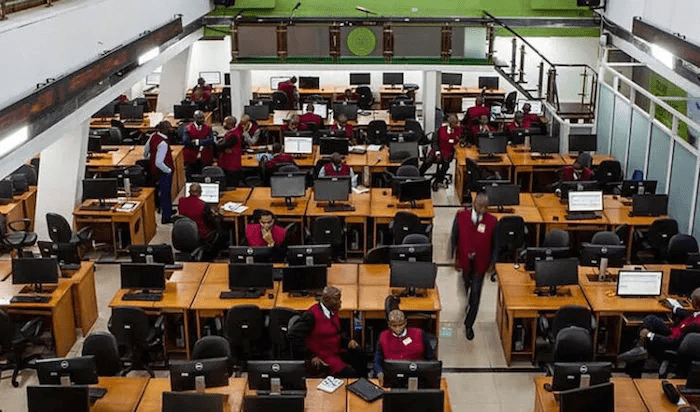
Dike Onwuamaeze
The Centre for the Promotion of Public Enterprise (CPPE) has endorsed the imposition of 15 per cent tariff on refined petroleum products by President Bola Ahmed Tinubu, which it described as a forward-looking policy that could transform Nigeria’s industrial landscape if reinforced with complementary reforms.
The CPPE gave its endorsement yesterday in a policy brief titled “Strategic Protectionism to Drive Nigeria’s Industrialisation,” in which it advocated strategic protectionism in the form of a calibrated policy approach that safeguards emerging industries while building competitiveness and self-sufficiency.
The Founder/Chief Executive Officer of CPPE, Dr. Muda Yusuf, said in the policy brief that the recent 15 per cent import duty on refined petroleum products represented a positive policy step that could catalyse industrial expansion, conserve foreign exchange, create jobs, and promote Nigeria’s economic resilience if it is complemented with broader industrial support measures.
Yusuf said: “Nigeria’s journey to sustainable industrialisation must be anchored on strategic, time-bound protectionism, not indiscriminate liberalisation.
“No country has industrialised through unrestrained exposure to imports.
“The 15 per cent tariff on refined petroleum products is a forward-looking policy that can transform Nigeria’s industrial landscape if reinforced with complementary reforms.
“This is not merely about a single refinery. Rather, it is a sector-wide proposition that supports all current and future domestic investors in refining and related industries.”
According to him, the continuous importation of petroleum products has imposed immense costs on the Nigerian economy, such as sustained pressure on foreign exchange reserves, fiscal instability, and the collapse of domestic refining.
He “therefore, said that the 15 per cent import duty on refined petroleum products – petrol and diesel – is a progressive and corrective measure.
“This modest protection will provide the policy support needed for domestic refineries such as Dangote Refinery, NNPCL refineries, and emerging modular refineries to thrive, restore Nigeria’s refining capacity, and reduce foreign exchange exposure.”
He argued that “protectionism, when pragmatic and disciplined, is not about closing borders.
“It is about building domestic strength for global competitiveness. The goal is not to shut out the world, but to empower Nigeria to engage it from a position of strength.”
According to him, the Asian success stories of economies like China, South Korea, India, and Malaysia built their industrial strength through inward-looking strategies during their formative decades.
“They protected infant industries, promoted local content, and developed domestic value chains before gradually opening up to global competition,” Yusuf said, adding that “even the United States of America, the world’s largest economy, has recently adopted protectionist industrial policies to bolster its manufacturing base.”
He pointed out that Nigeria’s prolonged dependence on imports has created deep structural distortions.
“The absence of effective protection and inadequate support for local producers has discouraged investment and led to decades of deindustrialisation.
“The oil and gas sector epitomises this failure as decades of refined product importation have drained foreign reserves, weakened fiscal stability, and eroded economic sovereignty.”
He justified the case for strategic protectionism on the ground that industrialisation is a gradual process that begins with consolidating the domestic market, progresses through regional expansion, and culminates in global competitiveness.
Strategic protectionism provides the enabling environment for this evolution, he said.
“By shielding emerging industries from premature exposure to unfair competition, strategic protectionism encourages domestic investment, fosters local value addition, and allows firms to achieve efficiency and scale before competing globally.
“For Nigeria, this approach is not economic isolation or the creation of monopolies but a self-strengthening strategy to ensure that domestic economy develops sufficient capacity to compete effectively on the global stage,” he said.
Yususf pointed out that Nigeria’s industrial history has shown that sectors which received structured protection like flour milling, 70 per cent; agro processing, 30 per cent pharmaceuticals, recorded transformative outcomes.
“In this context, a 15 per cent duty on refined petroleum products is modest, balanced, and necessary to restore Nigeria’s refining capacity and fiscal resilience,” he said.
According to him, exposing local industries to global competition without addressing structural constraints is not genuine competition but a policy-induced disadvantage.
“Nigerian manufacturers face high energy costs, weak infrastructure, limited access to finance, inefficient ports, and complex regulatory frameworks.
“Producers in advanced economies, by contrast, enjoy subsidized energy, efficient logistics, and low-interest financing.
“Without correcting this imbalance, Nigerian firms cannot compete fairly.
“Genuine competition requires comparable production conditions, not a contest between subsidised imports and under-supported domestic producers.”


